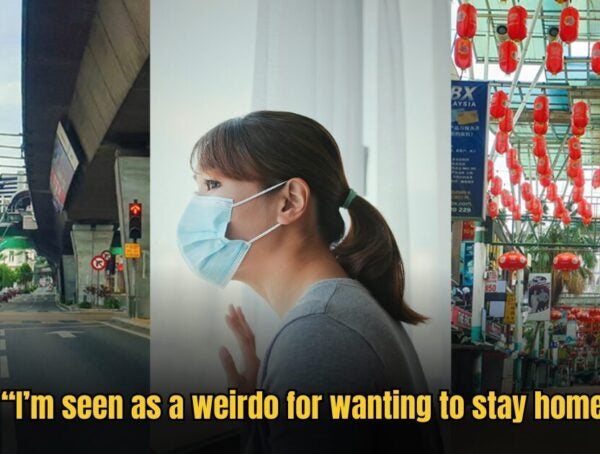
While people around me have been feeling constricted by the MCO, I find it to be just like any ordinary day.
That’s because I used to stay in probably one of the most remote locations in the world — in the jungle of the Baram district, Sarawak.
Here’s how this experience prepared me for the MCO.
I was a 23-year-old fresh grad who was offered a position in a rural school.
3 years ago, I was a 23-year-old university graduate who had just obtained a Bachelor’s degree in teaching English.
After 3 months of fruitless job searching, I was offered an interim position at a rural school in the deep jungle of Sarawak.

[The 13-hour journey from Kuching to Marudi. Image via Google maps.]
It was a place called Long Panai, located in the Baram district, in Sarawak.
To reach Long Panai, you have to travel 785km from Kuching to the nearest town, Marudi. The journey would take 13 hours.
After that, you must squeeze into a 4-wheel drive, and go a further 75 km through the thick jungle to get to Long Panai.
Long Panai is a valley with a river running through it. Dotted around the landscape are longhouses connected by rudimentary logging roads.

[From left: river, top right: logging road and valley]
Most people would freak out if they were told they have to move to a remote jungle valley 75km away from civilization, but when I was told I would be going to a village in the middle of the jungle, I was thrilled!
Growing up, I have always enjoyed living in a small town and the countryside. I lived in Serian, a town where everyone knew everyone. We were only a 45-minute drive away from Kuching.
I loved how the lifestyle was simpler back then. Now, it has become a busy city full of people. So when I heard I was going to relive my kampung lifestyle, I was so excited!
1. I learnt how to grow my own vegetables

[Here are some tomato seedlings I used to kickstart my vegetable farm.]
Living in the jungle means the nearest town to get food supplies is approximately a 4-hour ride using a 4-wheel-drive on logging roads. They were so bumpy, we called them roller coasters.
So, how else do you get your fresh food?
Simple. Gardening! I learnt to grow various kinds of vegetables myself.
We grew tomatoes, chillies, mulberries and more. No fertilizer needed — just don’t forget to water them with the leftover water you use to wash your rice.
It was a great experience, since I used to buy all my vegetables from a supermarket.
Meat isn’t always available unless there are villagers hunting and fishing at the Baram river.
When staying home was too tiring, we indulged in picnics where the male teachers would fish for food.
We would go to the ‘teluk’, build a fireplace and smoke the fish.

[Full disclosure, I didn’t catch these fish, haha — I’m just posing with the fish the male teachers caught.]
2. I learnt how to be independent
All my life, throughout my childhood till I graduated from uni, I had never been far from home.
My school was a 10-minute drive from home, and my college a mere 45 minutes away from home.
I’ve never been independent. To be honest, everything was prepared for me and handed down to me.
Living so far away from home taught me a great deal on how to stand on both feet — including fixing and repairing my own appliances in the wooden government quarters they provided for us.

[This is the Uma Beluvuh Longhouse in Long Panai]
In Long Panai, you have to try to fix every broken item yourself, because waiting for an electrician to come will take at least half a day from Marudi.
This one time, when the circuit breakers tripped, I had to roll up my sleeves and fix them. Once, one of our generators broke down, we’d switch to the backup generator and ration it to be used only during peak hours (6am – 2pm, then 6pm – 2am).
And that’s even if the electrician or mechanic has the right spare parts for the broken parts. If he didn’t, he would leave and come back with the part — which would take anywhere between 3.5 hours to 2 days!
Contrast that to living in the city — If the electricity was out for 3 hours, people would start panicking.
When I’m down with a fever, I still have to cook dinner for myself so that I don’t starve.
Sometimes, I can only go to the nearest town once a month, depending if there is transportation available, so I have to learn to buy enough long-lasting food rations that would last at least a month.
3. Money-saving goals are achievable
Staying in a rural village far away from any shopping mall, I was able to save up on money that I would normally spend on expensive coffees, nights out with friends, transportation and unnecessary shopping sprees.
Things sold at the local stall might be a bit pricey — a bottle of 1.5L Coca Cola would usually cost RM3.95 in town, but in the village they sell it RM5.00 per bottle.
But when most of my food came from the stuff we grew and caught ourselves, I could save up on important things and for any future investments.

[My colleagues and I having a Shellout and Banana Leaf style dinner]
4. I stopped being addicted to social media
The most obvious downside of living in the jungle is the absence of a reliable phone reception.
The telecommunication tower depends on the generator set, so, whenever it runs out of diesel, the phone reception can go out for days.
The longest we had to endure was 10 days, and my parents thought I was dead for not calling them!
And when they do have phone reception, the best you can get is 2G.
Imagine having only 2G — it was like we were still in the 90s. How will I ever call my boyfriend to tell him I miss him?
Well, when that happened, I found ways to keep me occupied.
I started investing my time in hobbies that I thought I was too busy to have — except I was always in front of my smartphone.
One clear and sunny day, I went hiking up the valley with my friends and colleagues. I picked up reading, and I’m currently on the 4th Harry Potter book.

[This was a photo of us going hiking, having to go through a paddy field. I’m on the far right. Credit: Facebook @ Nora Jong]
So, we had little gatherings, where we talked and watched movies, had local karaoke nights, which was really fun.
5. I appreciated my family more
I’ve always been close to my parents and my siblings because family is always important to us.
But when I moved 860 km away from them, I began to realise how short a time I had left with them.
I talk to them more, call them once every few days, send them text messages in between meals, update one another about our whereabouts, if the phone reception allows it.
Like the saying goes: “You don’t know what you have until it’s gone.”
I learnt to appreciate every moment I have with my family and friends. Because I don’t want to wait until it is too late to tell them and show them what they mean to me.
What living in the jungle taught me about self-isolation
Living alone in the jungle may seem like a form of self-isolation to most people.
However, I believe that to be happy with your living situation is to have a positive mindset no matter where you are in life.
Enjoying living in the jungle does not always mean that I am an extremely introverted person, but just someone who simply enjoys living in a calmer and more mellow setting.
This experience has taught me to work it out no matter what my living situation is — to adapt as quickly as I can rather than moping around, wishing how I could be transferred to the city.
The first few months for me were definitely rough.
I was addicted to updating my status on social media regularly, unable to Google even for the simplest task like how to fillet a fish and playing videos on Youtube.
I told myself each day that it won’t be long.
But then, I started to make friends with the locals, who love to have small gatherings, hiking and doing all sorts of activities.
Villagers and pastors have been kind to me, inviting me to dinner at the longhouse and church.

Furthermore, the rural children who aren’t attached to technology were like a mood changer. Having them at the school field, in rain or shine, has been fun to witness. Sometimes I even join in.
Plus, my colleagues who are supportive, active, and host gatherings at weekends, left no room for boredom.
As an English teacher here, I became more outgoing than I was before. I used to be introverted, but staying in a place far from all the technological advances made me a better person today.
It helped the most with improving my people skills.

Slowly, everything connected to the outside world became detached to me and it made me appreciate human contact and in-person communication even more so.
Whenever I missed home, they would cook homemade meals for me and cheered me up. I have all the support I need to overcome my transition. I wasn’t lonely anymore.
What you can do during the MCO
In light of our MCO situation, why not make use of the time to focus on yourself, and become a better you?
It’s a great time to get in touch with your parents and siblings; Skype them, or Facetime them.
If you’ve ever had the same excuse as I did, “I’ll call you later. I’m in a meeting now,” why not change it to “Sure, I have time to chat.”?
Why not pick up hobbies you have delayed for years, like painting or gardening?
I see it as a time to reconnect with things and moments that give you joy in life.
Staying deep in the jungle, away from the outside world, I realised that in order to make myself happy, I need to think about being happy.
When you see everything in a negative light, you will, in turn, be upset with everything you see.
But if you see everything in a positive manner, even in the worst situations, you can at least make it a happier place for yourself.
Plus, the view in the evenings here is to die for.

Living alone is fun and doing it in a rural place is challenging, but I grew to love what I experience and appreciate what I had and still have. And one day, if I am to move out of Long Panai, I’ll surely miss it for good.
For more stories like this, read: 5 Lessons From a Sarawakian Village and What Life Is Like For A Senior Citizen During the MCO Period.

You might also like
More from Real People
‘A RM100 fee cost a company 5 years of revenue’ shares M’sian
This story is about a Malaysian who learned that bureaucracy can be defeated simply by not arguing with it.A billing …
‘I quiet-quit, upskilled, and tripled my salary,’ shares M’sian engineer
This story is about a Malaysian who learned that loyalty without leverage leads nowhere in the corporate world.After years of …
‘I did everything right, and it still wasn’t enough’ shares M’sian graduate
This story is about a Malaysian graduate navigating big dreams in a job market where a degree no longer guarantees …

















